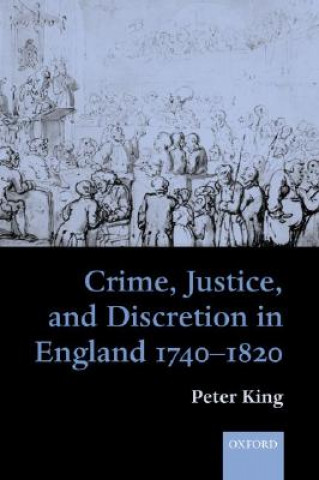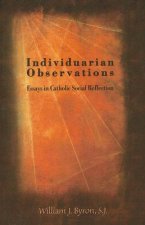
Kod: 04523527
Crime, Justice, and Discretion in England 1740-1820
Autor Peter King
The criminal law has often been seen as central to the rule of the 18th century landed elite in England. This book presents a detailed analysis of the judicial process - of victim's reactions, pretrial practices, policing, magistr ... więcej
- Język:
 Angielski
Angielski - Oprawa: Twarda
- Liczba stron: 398
Wydawca: Oxford University Press, 2000
- Więcej informacji o książce

Zobacz książki o podobnej tematyce
-

Deadpool Max: Involuntary Armageddon
114.83 zł -

Individuarian Observations
91.66 zł -

Many Faces of RNA
890.62 zł
Bon podarunkowy: Radość gwarantowana
- Podaruj bon o dowolnej wartości, a my się zajmiemy resztą.
- Bon podarunkowy dotyczy całej naszej oferty.
- Możesz wydrukować elektroniczny bon z e-maila a następnie przekazać go obdarowanemu.
- Ważność bonu wynosi 12 miesięcy od daty wystawienia.
Więcej informacji o Crime, Justice, and Discretion in England 1740-1820
Za ten zakup dostaniesz 712 punkty
 Opis
Opis
The criminal law has often been seen as central to the rule of the 18th century landed elite in England. This book presents a detailed analysis of the judicial process - of victim's reactions, pretrial practices, policing, magistrates hearings, trials, sentencing, pardoning and punishment - using property offenders as its main focus. The period 1740-1820, the final era before the coming of the new police and the repeal of the capital code, emerges as the great age of discretionary justice, and the book explores the impact of the vast discretionary powers held by many social groups. It reassesses both the relationship betweeen crime rates and economic deprivation, and the many ways that vulnerability to prosecution varied widely across the lifecycle, in the light of the highly selective nature of pretrial negotiations. More centrally, by asking at every stage who used the law, for what purposes, in whose interests and with what effects, it opens up a number of new perspectives on the role of the law in eighteenth century social relations. The law emerges as the less the instrument of particular elite groups and more as an arena of struggle, of negotiation and of compromise. Its rituals were less controllable and its merciful moments less manageable and less exclusively available to the gentry elite than has been previously suggested. Justice was vulnerable to power but was also mobilised to constrain it. Despite the key functions that the propertied fulfilled, courtroom crowds, the counter-theatre of the condemned and the decisions of the victims from a very wide range of backgrounds had a role to play, and the criteria on which decisions were based were shaped as much by the broad and more humane discourse which Fielding called the "good mind" as by the instrumental needs of the propertied elites.
 Szczegóły książki
Szczegóły książki
Kategoria Książki po angielsku Humanities History Regional & national history
1221.64 zł
- Pełny tytuł: Crime, Justice, and Discretion in England 1740-1820
- Autor: Peter King
- Język:
 Angielski
Angielski - Oprawa: Twarda
- Liczba stron: 398
- EAN: 9780198229100
- ISBN: 0198229100
- ID: 04523527
- Wydawca: Oxford University Press
- Waga: 727 g
- Wymiary: 243 × 163 × 26 mm
- Data wydania: 28. September 2000
Ulubione w innej kategorii
-

Hundred Years' War on Palestine
57.71 zł -15 % -

Ethnic Cleansing of Palestine
61.24 zł -15 % -

History of Japan
81.39 zł -4 % -

Ten Myths About Israel
55.40 zł -10 % -

Strange Death of Europe
70.20 zł -14 % -

Decline and Fall of the Roman Empire
25.07 zł -26 % -

Secret History
51.97 zł -23 % -

God's Playground A History of Poland
291.83 zł -

Mayflower
81.69 zł -5 % -

How to be a Victorian
51.87 zł -23 % -

Plantagenets
61.14 zł -23 % -

General's Son
85.62 zł -5 % -

Iran: A Very Short Introduction
57.71 zł -5 % -

Temples of Karnak
651.97 zł -

Cuneiform
47.34 zł -23 % -

Twenty Years A-Growing
42.70 zł -23 % -

China in Africa
155.53 zł -

Bohemian Paris
81.49 zł -5 % -

History of Witchcraft in England from 1558 to 1718
78.97 zł -

Islandman
53.38 zł -9 % -

Lancaster And York
89.04 zł -1 % -

Alexiad
89.75 zł -4 % -

Modern France: A Very Short Introduction
57.71 zł -5 % -

Inside Hitler's Greece
100.12 zł -9 % -

Diana: Her True Story - In Her Own Words
52.37 zł -15 % -

The Fourth Turning
77.26 zł -14 % -

The Oxford History of Ancient Egypt
65.77 zł -23 % -

Churchill: The Power of Words
70.20 zł -14 % -

Palestine
91.36 zł -14 % -

Korean History in Maps
133.57 zł -5 % -

Great Gatsby (Wisehouse Classics Edition)
32.73 zł -70 % -

Viking Way
196.43 zł -6 % -

The Thirteenth Tribe
59.42 zł -

My Promised Land
61.24 zł -15 % -

Vanished Kingdoms
87.93 zł -14 % -

Age Of Revolution
70.41 zł -23 % -

Life and Death of Anne Boleyn
100.43 zł -2 % -

Coming of the Third Reich
79.47 zł -23 % -

Children of Ash and Elm
78.97 zł -14 % -

Europe Between the Oceans
140.42 zł -10 % -

Socialism Betrayed
97.30 zł -5 % -

303 Squadron
79.47 zł -23 % -

Ancient Celts, Second Edition
133.57 zł -5 % -

Dancing in the Glory of Monsters
81.49 zł -5 % -

Battle of Britain: Luftwaffe Blitz (Images of War)
112.41 zł -6 % -

Age of Confucian Rule
139.41 zł -

Beyond Band of Brothers
70.41 zł -23 % -

Benjamin Franklin
70.41 zł -23 % -

On China
78.97 zł -14 %
zadowolonych klientów
Od roku 2008 obsłużyliśmy wielu miłośników książek, ale dla nas każdy był tym wyjątkowym.
Copyright! ©2008-24 libristo.pl Wszelkie prawa zastrzeżonePrywatnieCookies



 21 milionów książek
21 milionów książek Dostawa 10.99 zł
Dostawa 10.99 zł (32) 444 93 66 (8-15.30h)
(32) 444 93 66 (8-15.30h)